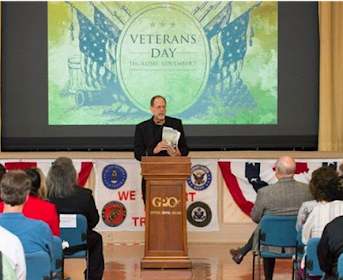Saving Monticello: The Newsletter
The latest about the book, author events, and
more
Newsletter Editor - Marc Leepson
Volume XIX, Number 3
March 1, 2022
“The study of the past is a constantly evolving, never-ending journey of discovery.” – Eric Foner
OUR MAN IN LONDON: I’ve often described Jefferson Monroe Levy as a late-19th and early 20th-century jetsetter. That’s because after he made a fortune in real estate and stock speculating Levy was forever—not jetting off—but sailing off to London, Paris, Biarritz, Rome, and the Riviera and training off to Palm Beach on the posh Florida East Coast Railway.
During those jaunts Jefferson Levy mixed and mingled with other upper-crust folks, saying in posh hotels, dining in five-star restaurants, and partaking in many a high society social event.
Case in point: Levy spent most of the summer of 1895 in England and on the Continent, a sojourn I mention briefly in Saving Monticello. That trip included a memorable few days in July in England where Levy hobnobbed with the rich and famous.
The highlight of the trip came on July 11, when Jefferson Levy was among the guests at Sandringham House, the opulent, 8,000-acre royal residence near the Norfolk Coast owned by the Prince of Wales, the oldest son of Queen Victoria and Price Albert—the man who would give his name to an era when he ascended to the throne as King Edward VII six years later.
The occasion: the sale of a portion of the collection of the Prince’s hackney horses. The Washington Post reported that William Waldorf “Willie,” Astor, the English-American son of the fabulously wealthy industrialist John Jacob Astor III, paid the princely sum of $5,000 for “a pair of [the Prince’s] harness horses.” For his part, Jefferson Levy bought a yearling, which he promptly gave to John Thomas North, a close friend of the Prince of Wales known as the “Nitrite King” of England, who, the article said, “did most of the buying.”
The Prince of Wales (in photo below), the Nitrite King (so named because he owned all the nitrite mines in Chile), and the 33-year-old owner of Thomas Jefferson’s Monticello joined a who’s who of royals for lunch following the sale. The guest list included the Duke of York (the Prince’s son, who would become King George V in 1910) and the Duchess (Mary of Teck); Charles Richard John Spencer-Churchill, the 9th Duke of Marlborough; the Crown Prince of Denmark; the Duke of Sparta; and a gaggle of lesser British and lords and ladies.
After lunch, Jefferson Levy had “a long talk with the Prince,” Levy told The Washington Post, “and he gave me a special invitation to come and see him again.
“He asked a number of questions about America, but he seemed especially interested in Virginia. I was surprised at his intimate knowledge of the Old Dominion. He told me all about his visit to Mount Vernon, when he was in America, and said he would like to go there again, but had not the time.”
Levy went on to say he was less impressed by the Prince’s son. “I sat by the side of the Duke of York at lunch,” he said. “He is a fine fellow but he has not the charming manner which his father possesses.”
‘THE LEVYS OF MONTICELLO’ DOC: I’m happy to report that “The Levys of Monticello,” Steven Pressman’s terrific new documentary that tells the story of the post-Jefferson history of Monticello, was the subject of an excellent review and article in The Times of Israel newspaper last month. In it, reporter Renee Ghert-Zhand noted that the film used “a limited number of available archival images, on-screen interviews with experts [including yours truly], and dramatic readings of historical letters and statements” to come up with a “compelling narrative.” You can read the entire review at: https://bit.ly/TimesofIsraelReview
A week later the doc won the Building Bridges Award at the Atlanta Jewish Film Festival. The award, presented in conjunction with the American Jewish Committee, goes to the film that best exemplifies the festival’s main mission of fostering understanding among diverse religious and cultural communities. “This well-researched documentary poignantly reveals the parallel but very different stories, of the Black and Jewish connections to Monticello.” said Rabbi Noam Marans of the American Jewish Committee, who was on the Building Bridges jury. You can see the virtual award presentation at https://bit.ly/FilmFestPrize
Next up: a live (and virtual) screening on Sunday, March 6, at Congregation Mickve Israel in Savannah as part of the Savannah Jewish Cultural Arts Festival. More info at https://bit.ly/SavannahDoc
Stay tuned here for news of more film festival screenings in the coming months.
EVENTS: Just one event his month: A talk on the life of Francis Scott Key, based on my book, What So Proudly We Hailed: Francis Scott Key, a Life, for the monthly meeting of the Eliza Monroe Chapter of the National Society Daughters of 1912, on Thursday, March 10, in Alexandria, Virginia.
If you’d like to arrange an event for Saving Monticello, or for any of my other books, please email me at marcleepson@gmail.com
For details on other upcoming events, check out the Events page on my website: https://bit.ly/NewAppearances
GIFT IDEAS: Want a personally autographed, brand-new paperback copy of Saving Monticello? Please e-mail me at marcleepson@gmail.com I also have a few as-new, unopened hardcover copies, along with a good selection of brand-new copies of my other books: Flag: An American Biography; Desperate Engagement; What So Proudly We Hailed; Flag: An American Biography; and Ballad of the Green Beret: The Life and Wars of Staff Sgt. Barry Sadler.





